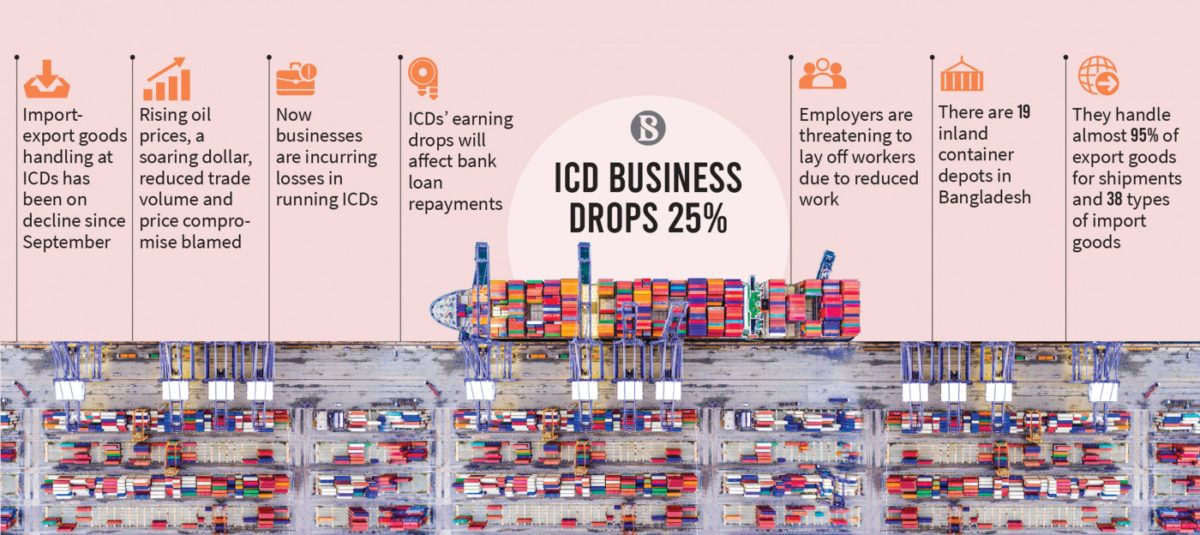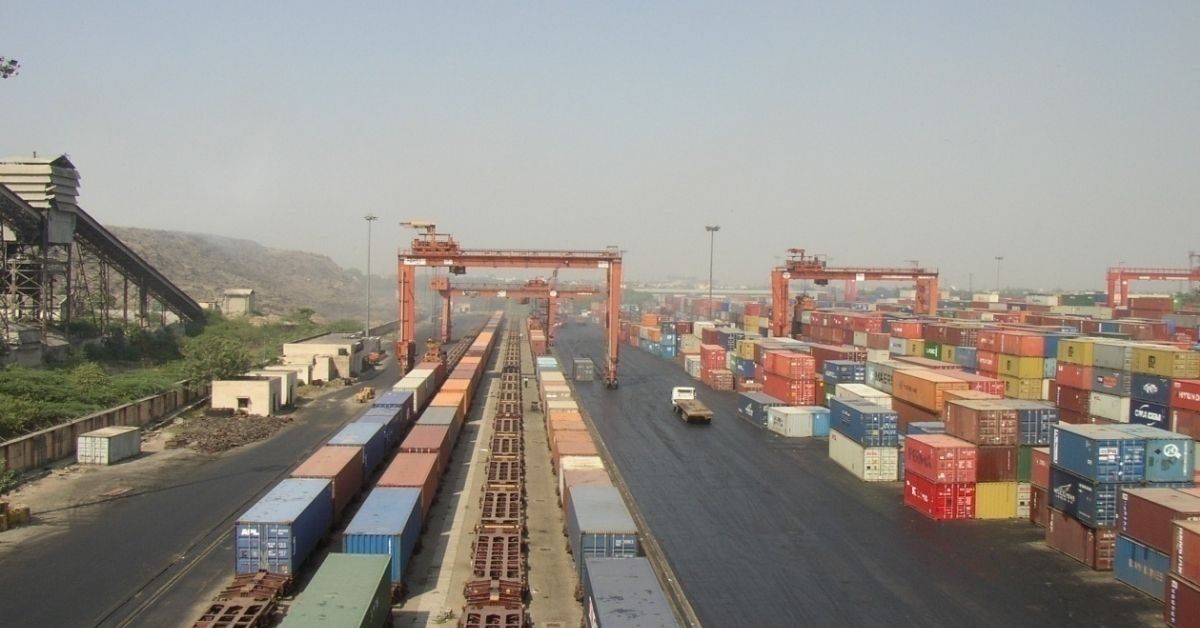
“The handling of import-export goods at ICDs has been steadily declining since September. Now the ICD business has dropped by about 25%, and the owners are incurring losses in running the depots,” Nurul Qayyum Khan, president of the Bangladesh Inland Container Depots Association (Bicda), told The Business Standard.
“The drop in ICDs’ earnings will affect bank loan repayments. Bank loans, along with interests, will increase further. As 25% of the work has declined, the number of workers will also have to be reduced,” he added.
In Bangladesh, there are 19 inland container depots, also known as off-docks, which handle almost 95% of export goods for shipments and 38 types of import goods, including food items like rice, wheat, mustard seed, chickpeas and pulses, according to industry insiders.
The ICDs work to help ease congestion at the Chattogram Port and facilitate quick clearance of full container loads of cargo by allowing unloading or delivery from outside the port area, sources said.
In normal times, the 19 small and big private ICDs in Chattogram earn Tk160 crore to Tk175 crore per month, according to businessmen.
Imran Fahim Noor, managing director of Vertex Off-Dock Logistic Services Limited, said, “ICDs currently face four types of problems – rising oil prices, a soaring dollar, reduced trade volume, and price compromise. We are struggling to stay afloat by dealing with these. If the crisis does not end immediately, we will have to resort to cost cutting.”
He said 80-90 twenty-foot equivalent unit (TEU) export containers would be loaded onto ships at the Vertex depot every day. Now it has come down to 60-70 TEUs. Similarly, the handling of imported goods has also decreased by about 25%.
According to Bicda, a platform of ICD owners, the container storage capacity of the depots is about 76,000 TEUs. Approximately Tk6,000 crore has been invested in ICDs, which employ around 20,000 permanent and temporary workers.
Around 2,500 TEU containers were taken from the depots to the port every day for shipping. But now the amount has dropped to 1,500–1,700 TEUs.
ICD owners said foreign buyers are taking advantage of the drop in business volume. Although there is a fixed charge of ICDs based on the service, they are offering a 10-15% discount on charges.
They are forced to accept such behaviour from foreign buyers of critically important garments. If this situation continues, the operation of the depots will have to be carried out with subsidies.
Captain Kamrul Islam Mazumdar, director and chief operating officer of Summit Alliance Port Limited, said, “Export volumes have been steadily declining since September. Imports have also decreased since October. This is alarming for business.
“In normal time, our two ICDs – SAPL and OCL (Ocean Containers Limited) – handled 13,000 TEUs of export products per month. Now it has dropped to 10,000 TEUs,” he added.
The decline in the handling of import-export goods has also affected cargo transportation business. The number of covered trucks used to carry import-export goods to and from Chattogram Port has also dropped at the same rate. Truck drivers are transporting goods at lower prices than fixed fares due to reduced transport trips.
Chowdhury Zafar Ahmed, secretary general of the Bangladesh Covered Van-Truck-Prime Mover Goods Transport Owners Association, said about 10,000 truckloads of goods are used to be transported to and from the port from different parts of the country every day. This amount has now dropped by 25% due to the decrease in imports and exports through the Chattogram port.
“That means around 7,500 vehicles are running every day. As the demand has decreased, workers are renting vehicles at low prices. The transport fare from Dhaka to Chattogram, which used to be Tk20,000 to Tk22,000, has now come down to Tk15,000. It has also become difficult to meet the costs by transporting goods,” he added.
Chattogram Prime Mover and Trailer Workers Union Secretary Abul Khair said around 16,000 prime movers run across the country to transport containers to and from the Chattogram port and ICDs.
“Now it has come down to 12,000. Employers are threatening to lay off workers due to reduced work. In this situation, transport workers are afraid of losing their jobs,” he added.







